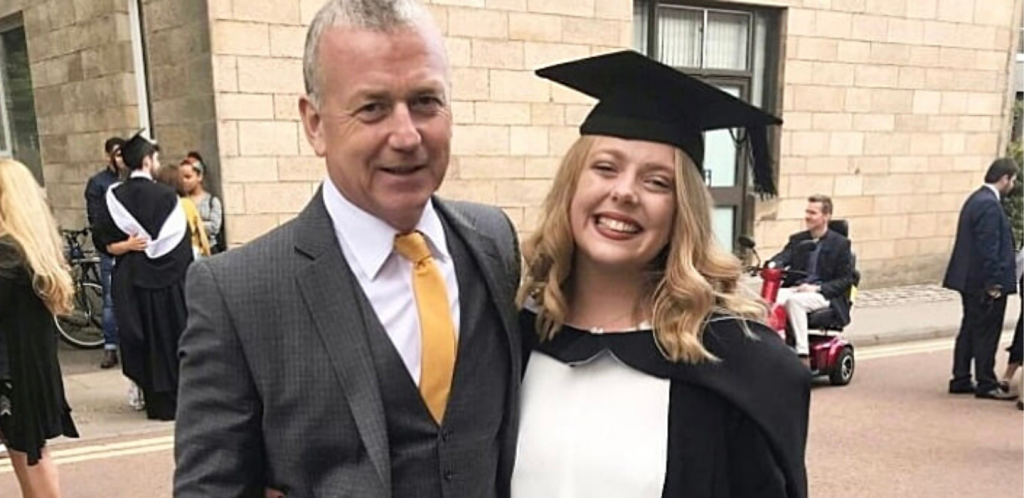Please note: the following story contains references to suicide that may be upsetting to some readers.
Eilidh Naismith’s first memory of her dad, Dougie, going through a difficult time with his mental health was when she was just eight years old… it was something Dougie lived with for many years.
However, she says when he was injured in the Clutha Vaults helicopter crash in Glasgow in 2013, the mental impact it had on him sparked a noticeable decline in the Scottish firefighter’s wellbeing. Dougie tragically went on to take his own life on 11 March, 2022, exactly 45 years after he first joined the fire service.
Now, Eilidh is sharing her memories with her “dearest” dad – and her experiences of coping following his death – to raise awareness of our new Crisis Line and the need for support for not only fire service personnel, but their families too.
“My dad suffered for years from mental illness, particularly due to shouts that had stuck with him throughout his life, but he never really needed hospital treatment or anything at that point,” says Eilidh, 27.
It was around 2013, however, when Eilidh says the real decline in Dougie’s mental wellbeing started.
“My dad loved going into Glasgow every weekend with his firefighter friends to have a pint and listen to live music, he loved live music,” says Eilidh. “They were at the Clutha Vaults listening to some on 29 November 2013, when the helicopter crash happened. He was retired at the time.
“My dad was one of the closest survivors to the impact zone. He’d just ordered a Guinness and a seat became free somewhere. Because of him moving to that seat, he was just out of the impact zone. 30 seconds difference and he wouldn’t have survived most likely.
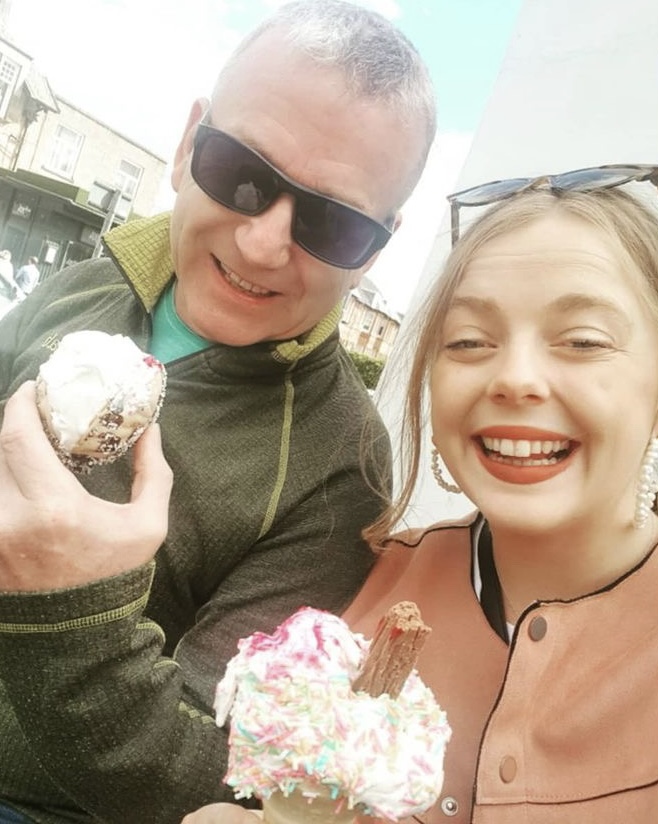
“He was buried under the rubble with the helicopter blades above his head, and he’d suffered a lot of broken bones himself. But it was the mental impact afterwards that hit him the hardest.”
Dougie struggled with memories from the day and was previously diagnosed with PTSD after retiring from the fire service but Eilidh says: “It became a whole different kind of illness after that. He had periods of time where treatment worked, but he’d relapse and he never really got well. He suffered from psychotic episodes which became difficult to manage at home.”
Dougie had mental health support externally, but also visited Jubilee House, our centre in Cumbria, a few times for some time away and to work on both his physical and mental wellbeing.
“My dad was a regular supporter of The Fire Fighters Charity,” says Eilidh “He retired in 2006 and always continued supporting the charity from then on.
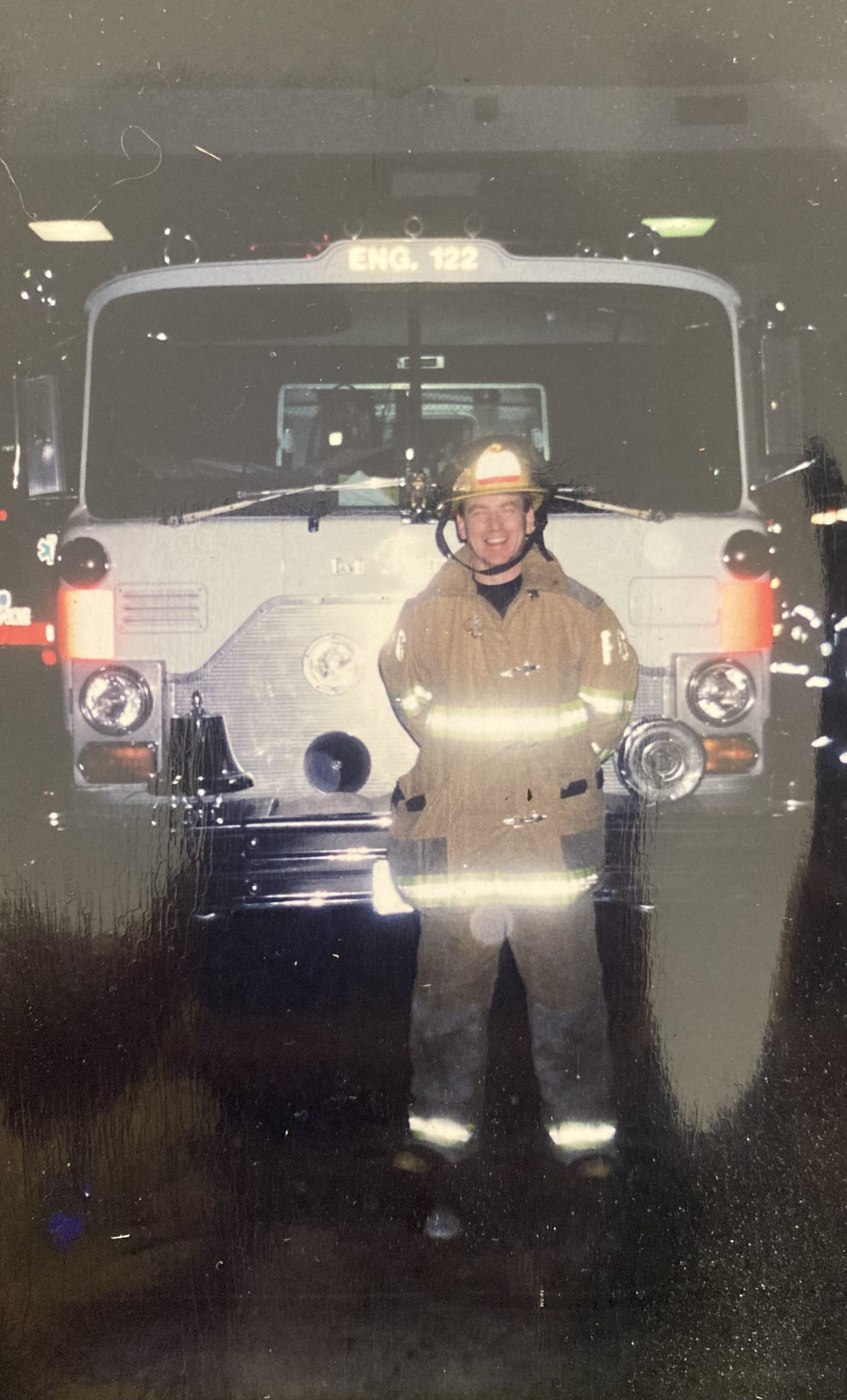
“He had support a few times at Jubilee House. He said he had a lot of psychological help through the group sessions while he was there, as well as the physical side.
“I feel like Jubilee, for him, was a bit of a getaway from it all and a sanctuary… a place of peace. I personally remember seeing him come back from his visits looking much more refreshed.
“In true Dougie style, forever befriending strangers everywhere he went, he also made some of his life-long friends there along the way.
“Dad was such a big advocate of The Fire Fighters Charity, so I want to share what an impact the support he received had on him.
“The things firefighters see on the job, you can’t not be impacted by that in some way, shape or form. I remember a lot of the things my dad spoke about and I’d think ‘wow, I can’t begin to imagine what it’s like to have experienced and witnessed what you have’.
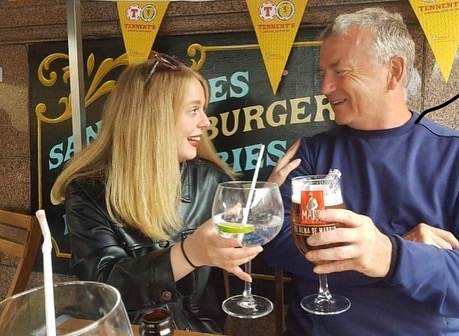
“Courageous firefighters, like our dad, tend to be unsung heroes, who not only battle to put out roaring fires, but are the first to show up to devastating catastrophes and car accidents. They work tirelessly to save lives and make a difference in their communities daily.
“It takes a really special type of person to run into a burning building or show up to a catastrophe and not mess about. Also things like talking in the community and in schools always gets forgotten – that’s such an important job.
“It isn’t something you leave behind when you retire, either, it’s life-long. Some memories stick with you forever, both good and bad.”
We recently launched a suite of online suicide prevention resources, which Eilidh says are vital for families who have lost someone, as well as anyone experiencing suicidal thoughts themselves.
“It’s so important, the work that the charity does. I was really lucky because my mum, Ann, was a mental health nurse, so her knowledge was really helpful, but for a family member it’s really hard to know where to start when you see a loved one suffering with a mental illness.
“Having resources available to families – particularly after losing someone – is vital.”
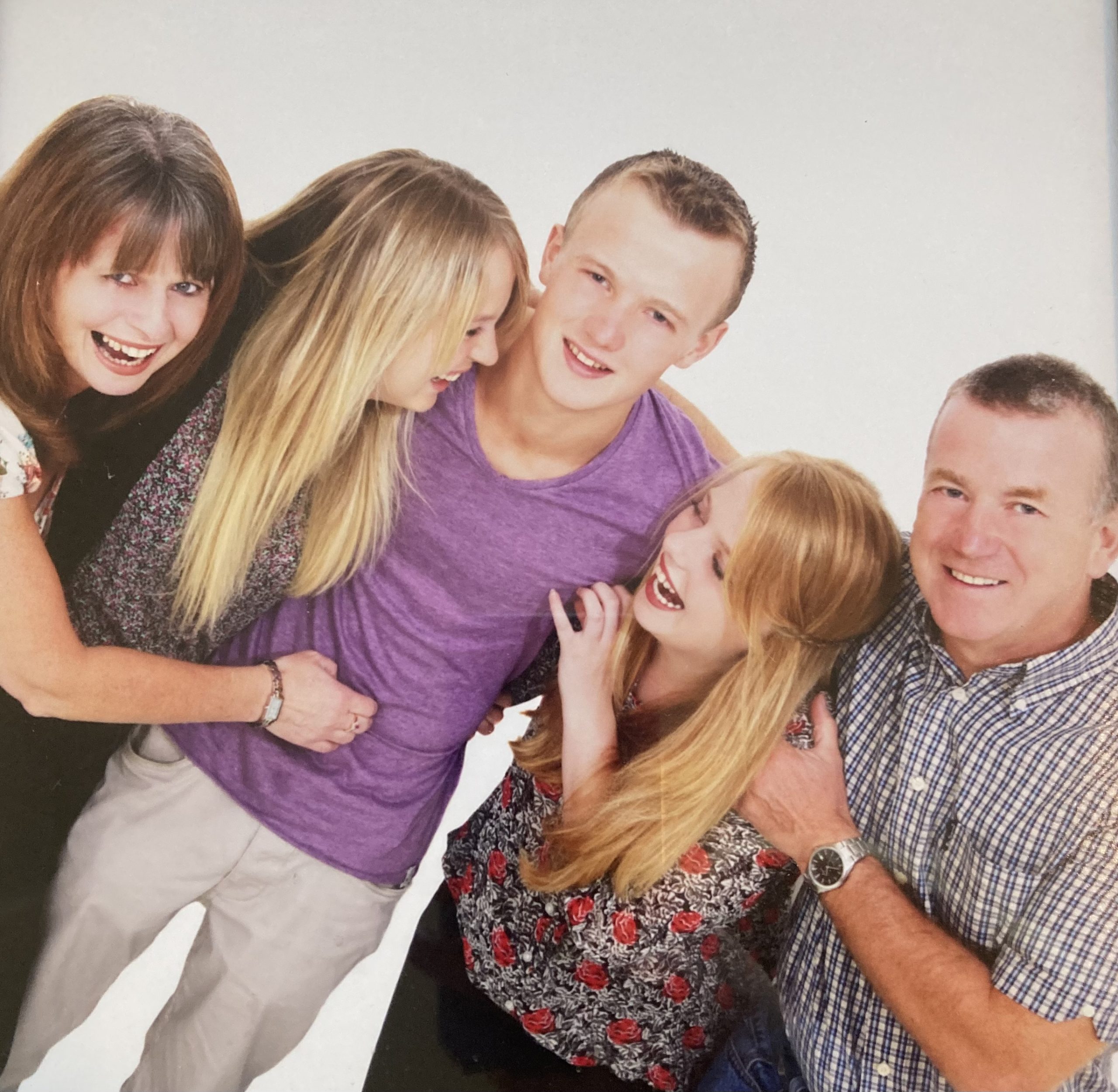
In the final years of her dad’s life, when he was really struggling with his mental health, Eilidh began running to distract her own mind and provide an outlet. She continued after he passed away, and says it’s been a huge coping mechanism for her.
“Friday 11th March 2022 marked 45 years since our lovely dad, Douglas, dedicated his life to a career in the fire service, saving lives for a living. On that same day, our dad died by suicide after a relentless, enduring, and agonising battle with mental illness. The only fire we could not find the tools to put out, despite all efforts, was the one blazing every minute in his mind,” Eilidh says.
“I don’t often speak about the details of my dad’s illness, because I feel that’s his story to share, but I can certainly speak to the impact it had on me.
“For me, the first six months were a bit of a blur. We collected for the charity at his funeral which meant a lot.
“All my family have had very different coping mechanisms. Mine has been therapy and counselling, I throw myself into these things, and a huge one has been running. Fresh air, getting out and connecting with people are what really helped me I’d say in those initial months – and still now.
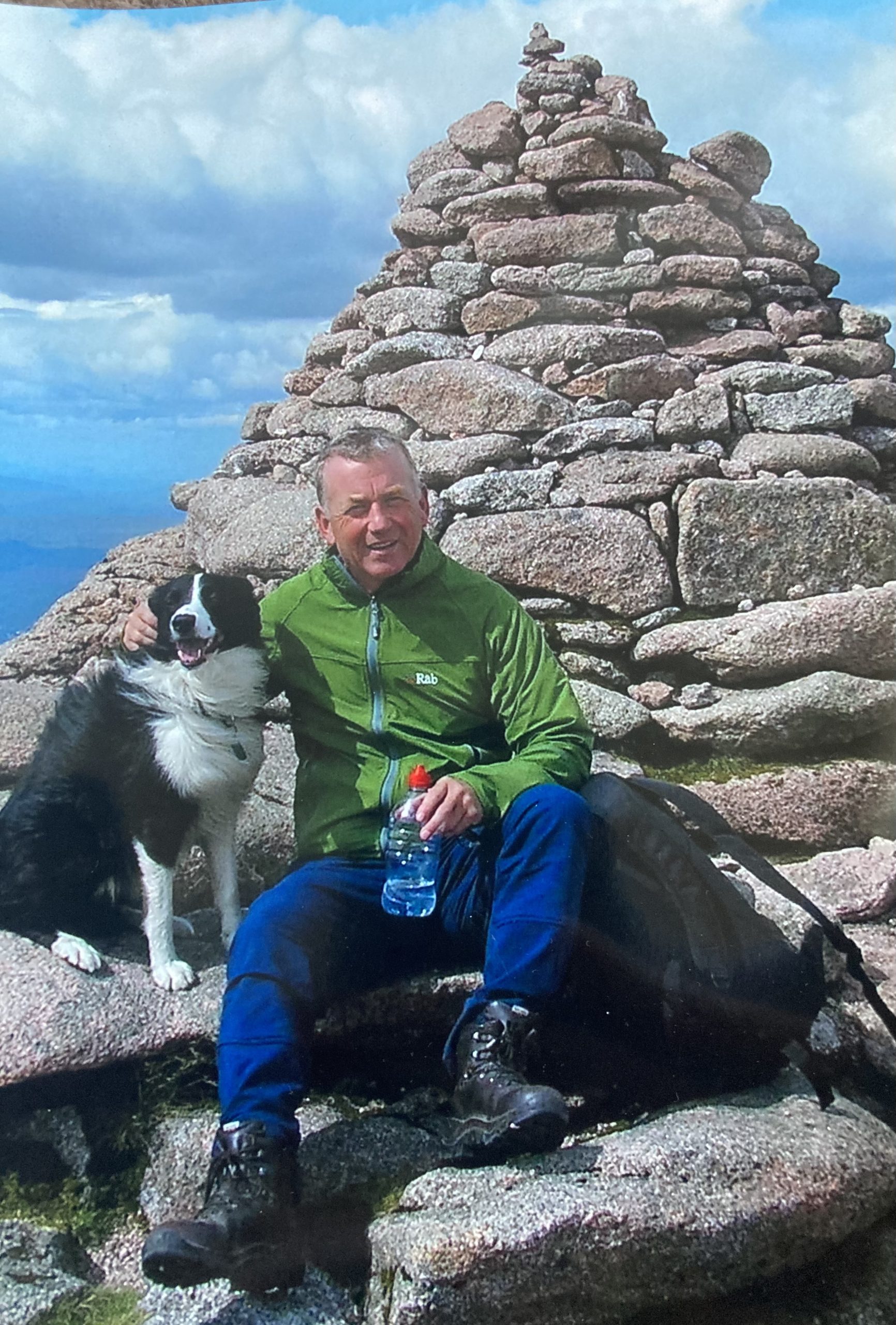
“Dad loved the outdoors, particularly the garden, and going off into the mountains camping with his best friend, our family dog Oscar. Now, when I’m running out outside, I feel closer to him somehow.
“Every day’s hard but when you can get outside and doing something you enjoy, you start to see those moments of peace creeping back in in the chaos of grief – which is really heavy and sometimes overwhelming.
“Some days it hits me on occasions like Father’s Day or his birthday, other times it can just be everyday stuff like returning to Scotland and seeing his chair empty. It’s so unpredictable.”
Eilidh adds: “I live in London now and I go to regular support groups with other people who have been bereaved by suicide (organised by Survivors of Bereavement by Suicide) and and I’ve found that really helpful. You switch off from the world for two hours and sit with your grief while talking with others who have experienced something similar… there’s husbands, wives, sons, daughters, parents who’ve lost children, just so many people impacted.
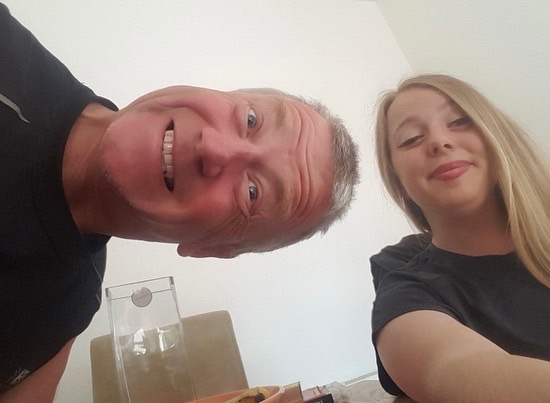
“I hear some people saying ‘I feel angry this week’ or ‘I feel guilty’ and, sometimes, we can feel numb like it’s a never-ending nightmare you can’t wake up from… it’s like they’re vocalising feelings that I’d never have known how to.
“It’s knowing that you can be vulnerable and that you are not alone in what you are feeling. There are so many layers of complex emotions that you navigate after a loved one dies by suicide, it can be a lonely journey, but navigating them with others who truly understand helps.
“Every person’s journey when they’ve been impacted by suicide is different – for some, they may have known for years that their loved one was suffering, like me, but for others there may not have been any noticeable signs at all.”
Eilidh and her brother, James, wanted to organise a fundraiser in aid of us as a way of paying tribute to their dad, and raising awareness of the support available through our charity.
They both completed Glasgow’s Great Scottish Run on 1 October this year, and – including Gift Aid – raised over £5,000 for us.
“It’s in your legacy Dad, that we want to leave this world a better place”
Eilidh Naismith
“Organising the half marathon in memory of my dad was really helpful for James and I,” says Eilidh. “When we were running, we could see our dad in the sidelines almost – he’d have been our biggest supporter, sharing it on Facebook and drumming up support.
“We’ve been overwhelmed by the love and support people have shown. I sometimes think he never realised how loved he was and, for example at his funeral, there were 400 people there – and that wasn’t even sharing it on any firefighter pages or anything.
“I think, ‘you had no idea the lives you touched’. Doing the Half Marathon, for me, took me back to the funeral and the realisation of how many people loved him. Just seeing the donations still coming in now shows that.
“He influenced all his children – Rachael, James and I – in so many ways. I’ve travelled all over the world and that’s all down to him… it’s in your legacy Dad, that we want to leave this world a better place than we found it.”
To support Eilidh and James’ fundraiser, click here.
If you’re feeling suicidal, call our Crisis Line on 0300 373 0896.
If you feel you’d benefit from our health and wellbeing support, you can call our Support Line on 0800 389 8820, make an enquiry online or visit the ‘Access Support’ tab in My Fire Fighters Charity.

